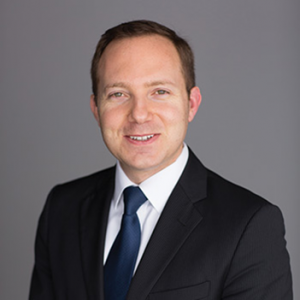On June 17, 2025, Rainwater Equity launched its first fund called, well, Rainwater Equity ETF (RW). The fund pursues long-term capital appreciation by investing in a concentrated portfolio of businesses with recurring revenue and robust leadership. The fund targets dominant companies that generate predictable cash flows and foster customer loyalty. Businesses that might qualify are software providers (almost all of which are sold by subscription and have a high cost-of-change), utilities (people consistently use electricity and water, even if the economy is slowing), waste management (similarly, people keep generating trash and chucking it), stock exchanges, and credit bureaus. As an example, almost 10% of the fund is invested in the Canadian firm, Constellation Software, Inc. Constellation acquires and manages business software firms that tend to have a recurring revenue model and are “sticky” by nature (changing software, especially at the enterprise level, is hugely painful, so companies try to avoid it). The manager emphasizes management quality far more than his peers seem to, seeking leadership committed to consistent results and sound capital allocation. The fund expects a low turnover (below 10% annually) and is seeking to minimize taxable events and optimize after-tax returns.
 The fund is managed by Joseph Shaposhnik, founder and CEO of Rainwater Equity, who brings a distinguished record in active investment management. Before launching Rainwater Equity, he managed the TCW New America Premier Equities Fund. Shaposhnik’s investment career spans a bunch of prominent institutions: he was an equity research associate at Fidelity Management and Research, covering semiconductors and entertainment software (where he first met Bill Miller, then in the midst of a 15 year streak of beating the S&P 500, in ’06 when Fidelity brought him in to talk with their managers), and worked with Morgan Stanley and Citigroup. He holds a BS in Business Administration from UC Berkeley’s Haas School and an MBA from UCLA Anderson School of Management.
The fund is managed by Joseph Shaposhnik, founder and CEO of Rainwater Equity, who brings a distinguished record in active investment management. Before launching Rainwater Equity, he managed the TCW New America Premier Equities Fund. Shaposhnik’s investment career spans a bunch of prominent institutions: he was an equity research associate at Fidelity Management and Research, covering semiconductors and entertainment software (where he first met Bill Miller, then in the midst of a 15 year streak of beating the S&P 500, in ’06 when Fidelity brought him in to talk with their managers), and worked with Morgan Stanley and Citigroup. He holds a BS in Business Administration from UC Berkeley’s Haas School and an MBA from UCLA Anderson School of Management.
Key elements of his strategy include:
- Recurring Revenue: He views this as the ultimate business model, seeking out companies where revenue is predictable and repeatable.
- Quality Investing: His framework emphasizes a focus on high-quality companies, where valuation plays a role but is not the sole determinant of a buy.
- Avoiding Benchmark Obsession: He believes that a rigid focus on a benchmark can lead to underperformance.
- ETF Structure: He chose an ETF over a mutual fund for its tax efficiency and transparency for investors.
Bill Miller, formerly chairman and CIO of Legg Mason, was one of the fund’s first investors. The ETF has a 1.25% expense ratio and will invest in 20 to 30 stocks, intended to be held for longer periods of time.
Why might you be interested?
Two reasons.
First, Mr. Shaposhnik makes sensible arguments. He argues that most active managers fail for two reasons. First, most investors are overconfident. They invest in companies whose prospects they cannot accurately predict, believing that they’re predictable. Second, most investors over-diversify, placing dozens or hundreds of individual bets in the hopes that they’re “diversifying away” risk. The inevitable result is disappointing performance, portfolio turnover, and tax bills. In a 2025 interview, Mr. Shaposhnik claimed:
The mutual fund industry is broken… Over the last decade, 93% of all mutual funds underperformed their benchmarks according to data compiled by S&P. Too many funds are hugging their indexes, owning hundreds of unpredictable businesses across every sector, and generating high tax bills for their investors — all while delivering mediocre, after-tax results. Rainwater was built to correct those failures…
Second, Mr. Shaposhnik has the performance to back up his words. TCW New America Premier Equities reportedly compounded at 16.7% from 2015 until his departure in 2024, outperforming the S&P 500’s 13.1% over the same period. According to Morningstar, “ The TCW New America Premier Equities Fund was ranked the top performing Multi-Cap Core Fund in America in 2017 according to data aggregated by The Lipper Rating System and has been named a ‘Category King’ nineteen times by the Wall Street Journal.” And, according to Rainwater, “For nearly a decade, the New America Premier Equities was ranked the top-performing fund out of 343 peers in its U.S. Large Cap Core Equity category by Nasdaq eVestment.” The performance claim seems quite plausible, but we don’t have the data at hand to confirm it.
Bottom Line
Rainwater has substantial differences from its TCW predecessor. It is more concentrated, less constrained by ESG considerations, can invest in IPOs, and is likely less US-centered. Like any actively managed product, due diligence remains essential. Still, for those prioritizing predictability and management talent in uncertain times, Rainwater Equity ETF stands out as a fund deserving close consideration.
The fund’s website is understandably sparse, but it has a “sign up for updates” pop-up that might be useful to folks who’ve followed Mr. Shaposhnik’s work, and the “We Study Billionaires” interview is rich and wide-ranging. MFO interviewed Mr. Shaposhnik in 2019.









